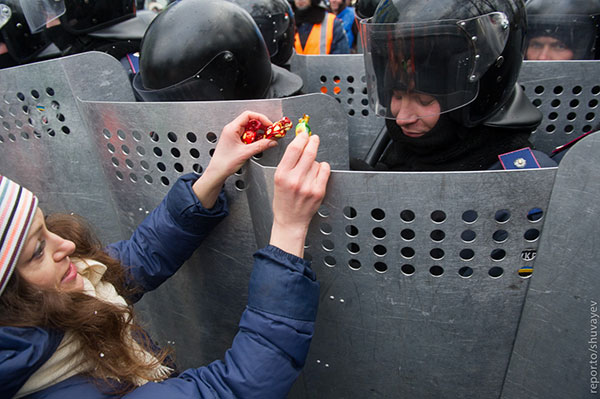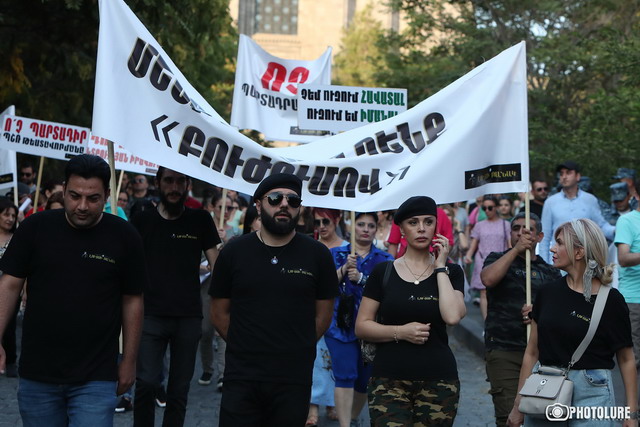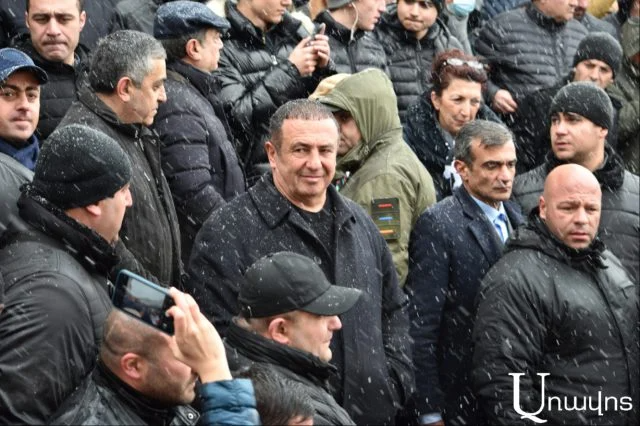What was John Locke thinking of the 1688 bourgeois-democratic revolution?
In the spring of 1992, during the opposition rally in the Freedom Square, which was organized by the National Self-Determination, I first heard that according to the UN Universal Declaration of Human Rights, people, as a last resort, have the right to rebel against tyranny. Paruyr Hayrikyan’s supporters, of course, were sure that the regime established at the time in Armenia was totalitarian. After that, I have heard and read about this reference in many other opposition speeches. There is no need to go far to get fresh examples. A few days ago, former Minister of Justice of Ukraine, Serhyi Holovati, referring to the situation in his country, said that according to the Constitution, the major responsibility of the state is to ensure human rights and freedoms. When the government fails to fulfill its duty, the people have the right to rebel.
At that time, in 1992, I, frankly speaking, was lazy to figure out whether there is a clause on revolt in the aforementioned UN document, which, naturally, is extremely beneficial to all countries’ radical and revolutionary opposition. Later, I found out that there is no such clause in the Declaration. Instead, there is a similar notion in the preamble of the Declaration. ” Whereas it is essential, if man is not to be compelled to have recourse, as a last resort, to rebellion against tyranny and oppression, that human rights should be protected by the rule of law,” (quoting from un.am). Given that the tones here are important, I also quote the Russian and Armenian versions. «Принимая во внимание, что необходимо, чтобы права человека охранялись властью закона в целях обеспечения того, чтобы человек не был вынужден прибегать, в качестве последнего средства, к восстанию против тирании и угнетения». “քանզի անհրաժեշտ է օրենքի իշխանությամբ պաշտպանել մարդու իրավունքները, որպեսզի նա, որպես վերջին միջոց, հարկադրված չընդվզի բռնակալության ու ճնշման դեմ”. Russian and English «восстание» and «rebellion» words leave no doubt that the matter is merely about rebel, because “rebelling” theoretically is possible at home, for example, sitting at the computer.
The word “tyranny”, which is mentioned in Russian and English texts, is not fully consistent with the meaning of “tyranny” because the Greek root of the word also contains the meaning of “arbitrary”. “Tyranny” is a form of a state power that was established by force and is based on the autocratic power. Historically, the matter is about the monarchical regime of the management. Although, since the 18th century, this concept has gained extremely wide sense, and, today, the “tyrant” can be described as the husband who does not allow his wife to go to the movies with her friends. Today, it is most commonly used the neutral word “dictatorship” (again, “tyranny”) in the public vocabulary.
Read also
The fact that people has the right to rebel against tyranny (we will use, however, although imperfect, but the Armenian term), was perhaps justified by the 17th century British philosopher, John Locke. On the time onward, this justification smoothly moved to the Human and Civil Rights and Freedoms Declarations of the U.S. independence in 1776, as well as of France in 1789. In 1948, the same notion appeared in the UN quoted document.
The basis of further understanding about Locke, as well as human rights and freedoms, is the so-called “natural right”, such a right that existed before the formation of states. In fact, in the opinion of the British philosopher, “it is the perfect freedom to dispose own actions, the property and the individual.” But, since in certain state of the history, people are unable to defend their own rights and freedoms, they conclude respective agreements with the state, and when the latter fail to perform its duties, they have the right to review the agreement. Here comes the right to rebel.
John Locke is mostly writing about this right in one of his works called “Treatises on the glorious revolution of 1688.” Actually, in the history, “glorious revolution” is called the coup, which was conducted by William of Orange the Third, dethroning his father-on-law, Jacob II Stuart. Becoming the King of England, William laid the foundation for constitutional monarchy, one of the ideologists thereof was John Locke. By its form, it was a replacement of one “gang” by another “gang”; by its content, it was strength gathered bourgeoisie rebellion against the absolute monarchy, which was ended by constitutional compromise.
And so, according to some theories, the people have the right to rebel against tyranny. However, many questions arise here: indeed, the people, or some “gangs”. And, most importantly, where actually the tyrannical regime was established, and where it is just announced. In Armenia, for example, for 22 years, all oppositions were and are sure that our country is a dictatorship. All the authorities, of course, have a different opinion. Generally, in the world, probably, there are no leaders, who say, ‘I am a dictator, let’s rebel against me’.
ARAM ABRAHAMYAN
The article is implemented by the Open Society Foundations-Armenia. The views and analysis found in this article express the opinion of the author and are not approved by the Open Society Foundations-Armenia or its Board. Preparation of this article was made possible thanks to comprehensive financial support by the Open Society Foundations-Armenia, within mass media support program, grant N18624.























































